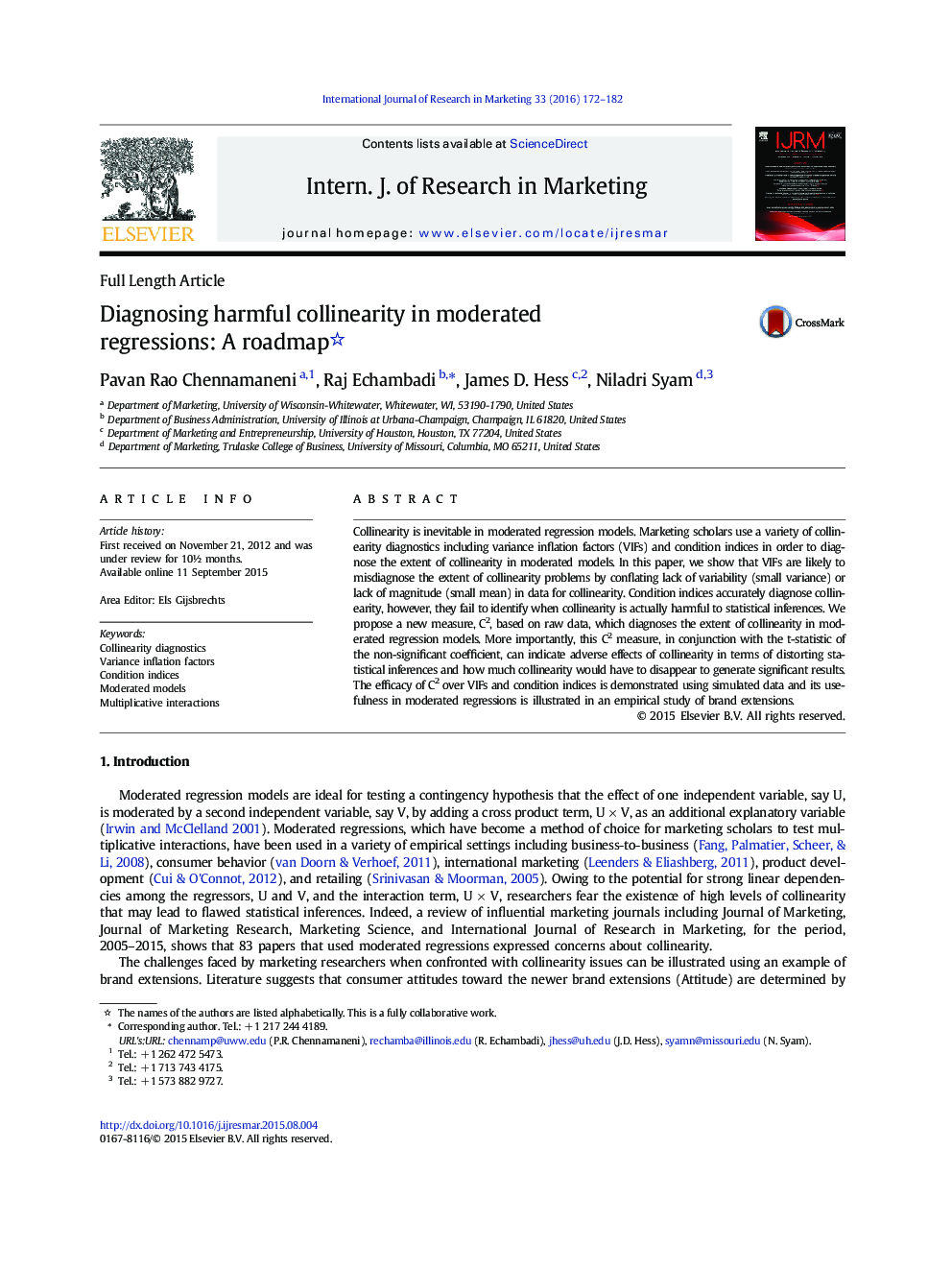| Article ID | Journal | Published Year | Pages | File Type |
|---|---|---|---|---|
| 880059 | International Journal of Research in Marketing | 2016 | 11 Pages |
•Condition numbers do not accurately identify when collinearity is actually harmful to statistical inferences.•Variance inflation factor (VIF), constructed from squared correlations, may misdiagnose the extent of collinearity problems.•VIF is a confounded measure as it conflates lack of magnitude and/or variability of regressors with collinearity•C2 can indicate the adverse effects of collinearity in terms of distorting statistical inferences.•C2 can identify how much collinearity needs to disappear to generate significant results.
Collinearity is inevitable in moderated regression models. Marketing scholars use a variety of collinearity diagnostics including variance inflation factors (VIFs) and condition indices in order to diagnose the extent of collinearity in moderated models. In this paper, we show that VIFs are likely to misdiagnose the extent of collinearity problems by conflating lack of variability (small variance) or lack of magnitude (small mean) in data for collinearity. Condition indices accurately diagnose collinearity, however, they fail to identify when collinearity is actually harmful to statistical inferences. We propose a new measure, C2, based on raw data, which diagnoses the extent of collinearity in moderated regression models. More importantly, this C2 measure, in conjunction with the t-statistic of the non-significant coefficient, can indicate adverse effects of collinearity in terms of distorting statistical inferences and how much collinearity would have to disappear to generate significant results. The efficacy of C2 over VIFs and condition indices is demonstrated using simulated data and its usefulness in moderated regressions is illustrated in an empirical study of brand extensions.
